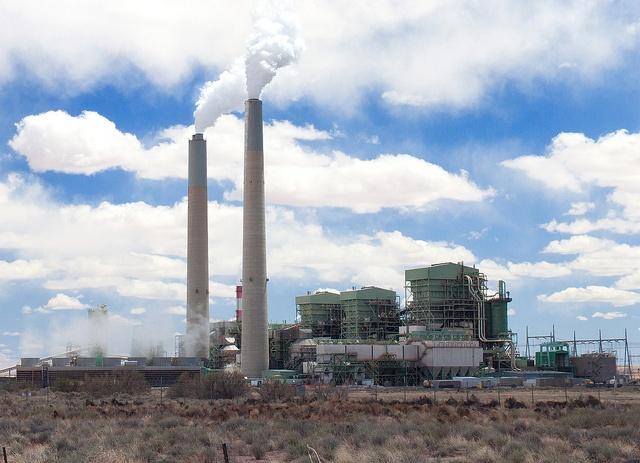
Besides denying that fossil fuel use is rapidly pushing civilization to a climate change tipping point, climate-change deniers contend that the costs associated with making climate change mitigation and adaptation a global priority would stifle economic growth and social development.
In advance of the U.N. Climate Summit and Climate Week NYC, which kicks off on Monday, some have even asserted that the campaign to reduce greenhouse gas emissions is a conspiracy aimed at gathering wealth and political power. Some might reply that this is a glaring example of “the pot calling the kettle black.”
Research studies from reputable, independent organizations, such as the landmark Stern Review, have concluded that the costs of inaction greatly outweigh the costs of addressing climate change head-on. A new study commissioned by the Global Commission on the Economy and Climate goes further, asserting that growth can not only be achieved, but enhanced, by following pathways that will result in societies that are socially and ecologically, as well as economically, sustainable.
Climate change action and the path to prosperity
The Global Commission on the Economy and Climate was established in 2013 by the governments of Colombia, Ethiopia, Indonesia, Norway, South Korea, Sweden and the U.K. “to help governments, businesses and society to make better-informed decisions on how to achieve economic prosperity and development while also addressing climate change.”
“Better Growth, Better Climate: The New Climate Economy Report” is the result of the research group's flagship project. It was carried out by the World Resources Institute (WRI) in collaboration with the Climate Policy Initiative, CRIER, Global Green Growth Institute, LSE Cities, Stockholm Environment Institute, Ethiopian Development Research Institute and Tsinghua University.
According to the report:
“The report’s conclusion is that countries at all levels of income now have the opportunity to build lasting economic growth at the same time as reducing the immense risks of climate change.”
A deep structural transformation
Getting there won't be simple, easy or quick, however, the report highlights. Doing so will require “a deep structural transformation” and technological changes that are already ruffling feathers and prompting fierce opposition from vested commercial and political interests – mainly the fossil fuel producers and power utilities whose businesses and profits are directly threatened.
Nonetheless, all the pieces are in place to drastically reduce global greenhouse gas emissions by shifting from fossil fuels to a distributed mix of locally-appropriate renewable and clean energy resources. Doing so, moreover, will result in more robust and resilient infrastructure, economies and sustainable societies. It would also open up vast new opportunities for economic and social development that, given appropriate government policies, can result in rising prosperity across all levels of society, report authors assert.
“The capital for the necessary investments is available, and the potential for innovation is vast. What is needed is strong political leadership and credible, consistent policies,” they highlight.
A critical 15-year window of opportunity
The next 15 years will be the critical window of opportunity for governments, businesses and societies to invest aggressively in climate change action that takes a holistic, integrated approach in addressing challenges spanning the water-food-energy nexus, the report's authors continue.
“It will not be 'business as usual.' The global economy will grow by more than half, a billion more people will come to live in cities, and rapid technological advance will continue to change businesses and lives,” they point out.
The New Climate Economy project team expects some $90 trillion is likely to be invested in infrastructure associated with urban, land use and energy systems worldwide over the next 15 years. “How these changes are managed will shape future patterns of growth, productivity and living standards,” they caution.
Image credits: Better Growth, Better Climate: The New Climate Economy Report
Featured image: Flickr/squeaks2569

An experienced, independent journalist, editor and researcher, Andrew has crisscrossed the globe while reporting on sustainability, corporate social responsibility, social and environmental entrepreneurship, renewable energy, energy efficiency and clean technology. He studied geology at CU, Boulder, has an MBA in finance from Pace University, and completed a certificate program in international governance for biodiversity at UN University in Japan.














